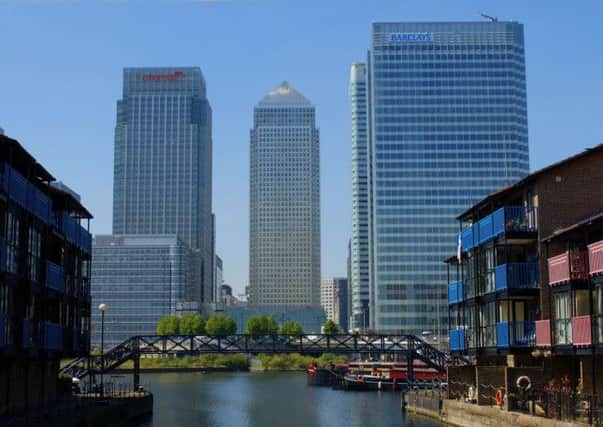Half of UK’s inheritance tax in London, south-east


Analysis of HM Revenue and Customs (HMRC) figures by insurer Prudential found that of the £2.6 billion worth of inheritance tax receipts recorded in the financial year 2010/11, around £1.3 billion related to London and the South East.
In London, where property values tend to be much higher than in the rest of the UK, the average amount paid out for an estate that is liable to inheritance tax is £234,400, while the South East has the second highest average tax bill at £174,200.
Advertisement
Hide AdAdvertisement
Hide AdThis compares with a typical figure of £154,000 in Scotland, £126,000 in Wales and £135,000 in Northern Ireland.
The average bill paid across the UK in 2010/11 was £165,700 and 15,600 estates were liable, with two-fifths (42%) of these being in London and the South East.
HMRC reviewed nearly 260,000 estates in the 2010/11 tax year, meaning only around one in 16 (6%) of all estates was liable to pay inheritance tax, which Prudential said is a similar figure to previous years.
In both Northern Ireland and the north east of England just 200 estates were liable for inheritance tax - compared with 810 in the county of Surrey in the South East alone.
The inheritance tax threshold, up to which point there is no tax to pay on someone’s estate, is set at up to £325,000. If an inheritance goes over the limit, then tax at 40% has to be paid on the amount over the “nil rate” band.
Changes introduced from 2012 mean that if at least 10% of the estate is left to charity, the amount over the threshold which the taxman can claim drops from 40% to 36%.
A recent Office for National Statistics (ONS) report found that people who receive an inheritance were more likely to live in a wealthier household, have a management-level job, be self-employed, own their own home outright and have a university educated father.
Women have a better chance of inheriting than men, which is likely to be because they tend to outlive men.
Advertisement
Hide AdAdvertisement
Hide AdGraeme Robb, a tax specialist at Prudential, said: “These figures reveal that a huge amount of inheritance tax is paid by a relatively small number of people.
“Nevertheless, it is likely that an average bill of more than £160,000 would be unwelcome for any family.”
The findings come at a time when the Government is trying to encourage more people to save for their later years by automatically enrolling people into workplace pensions.